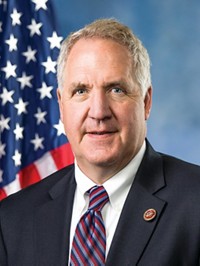Advertisement
Grab your lab coat. Let's get started
Welcome!
Welcome!
Create an account below to get 6 C&EN articles per month, receive newsletters and more - all free.
It seems this is your first time logging in online. Please enter the following information to continue.
As an ACS member you automatically get access to this site. All we need is few more details to create your reading experience.
Not you? Sign in with a different account.
Not you? Sign in with a different account.
ERROR 1
ERROR 1
ERROR 2
ERROR 2
ERROR 2
ERROR 2
ERROR 2
Password and Confirm password must match.
If you have an ACS member number, please enter it here so we can link this account to your membership. (optional)
ERROR 2
ACS values your privacy. By submitting your information, you are gaining access to C&EN and subscribing to our weekly newsletter. We use the information you provide to make your reading experience better, and we will never sell your data to third party members.
Safety
Congress Scrutinizes U.S. Chemicals Policy
Safety: Stakeholders are divided over how sweeping changes to TSCA ought to be
by Glenn Hess
November 20, 2009

Chemical manufacturers and environmental activists agree that the nation’s primary law for ensuring the safety of industrial chemicals needs reform, but differences over how much change is necessary were evident this week as Congress began to consider the future of U.S. chemicals policy.
The decades-old Toxic Substances Control Act (TSCA) needs to be updated to reflect scientific and technological advances, but a drastic overhaul is not required, Beth D. Bosley, managing director for Boron Specialties in Pittsburgh, told the House Energy & Commerce Subcommittee on Commerce, Trade & Consumer Protection. She testified on behalf of the Society of Chemical Manufacturers & Affiliates, an industry trade group.
“SOCMA agrees that TSCA can be modernized and that policy goals can be accomplished in a way that doesn’t devastate a strategic American industry that is already fighting recession and foreign competition,” Bosley said.
Congress is delving into the details of how best to reform TSCA, which remains unchanged since it was enacted in 1976. As a first step, House members are examining options for prioritizing existing chemicals for review and assessment by EPA (C&EN, March 9, page 24).
A system for ranking chemicals should be based on an evaluation of hazard and exposure, and modeled after “proven regulatory mechanisms,” Bosley said. As an example, she cited Canada’s program for identifying chemicals that require further data development, assessment, and management.
Environmentalists contend that TSCA is fundamentally flawed and unable to protect public health. A substantial rewrite of the statute should start with Congress authorizing EPA to identify and phase out the “worst of the worst” chemicals, said Daryl W. Ditz, senior policy adviser at the Center for International Environmental Law.
Chlorinated compounds and brominated diphenyl ethers are among the substances that should be “a top priority for action,” Ditz said, because they persist in the environment, bioaccumulate in the food chain, and pose serious health threats due to their toxicity.
Rep. Bobby L. Rush (D-Ill.), subcommittee chairman, plans to introduce legislation next year to overhaul TSCA, while Sen. Frank R. Lautenberg (D-N.J.) is expected to propose a similar measure in the Senate.



Join the conversation
Contact the reporter
Submit a Letter to the Editor for publication
Engage with us on Twitter